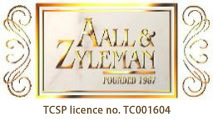
There were many and varied predictions of what Hong Kong would become after the handover in 1997-of course most of them proved to be wrong. Ten years before the handover most people predicted that Hong Kong’s economy would slow down in the count down to 1997. They imagined that more and more of the wealthier and better educated citizens would leave Hong Kong, and property and stock markets would suffer. However, the late First Secretary of China, Mr. Tang, came up with the new concept of “one country two systems”, the idea of which was to ensure that nothing will change in Hong Kong other than sovereignty. Hong Kong will continue as an independent jurisdiction. Hong Kong’s people will still use the same identification when visiting China, which is very easy, and they can stay if they so wish. Much more difficult for most of the people from Mainland China to come to visit Hong Kong or to stay. All the street names in Hong Kong remain unchanged. Names such as Prince Edward Road and Queen’s Road remind us that Hong Kong was once a British Colony.
Prince Edward was the older brother of the father of Queen Elizabeth II. When he was young he visited Hong Kong and the area now named after him was a particular favourite of his. It is well known that he gave up his throne for his love of an ordinary woman.
Back in modern times, the ‘one country two systems’ theory had ensured that confidence in the future of Hong Kong was greater than ever. People who emigrated in the 80s or early 90s are now returning in ever increasing numbers. Property and stock prices are reaching record highs. Prices and rental of commercial and residential properties are among the most expensive in the world.
Now in the 21st century we are convinced that “one country, two systems” works. The Chinese government has kept its promise not to interfere with Hong Kong’s autonomy. It is their most fervent wish to see Hong Kong remaining strong and prosperous. They know the best way to facilitate this is simply to allow Hong Kong to remain under the administration of Hong Kong people.
Those same Hong Kong people can still be seen demonstrating or gathering as they used to do to march through the streets with flags and banners protesting against unpopular government policies.
We see that after the handover Hong Kong has practically not changed, if not more beautiful because of the new airport connecting Kowloon by a huge suspension bridge, and the new skyscrapers on the waterfront. Hong Kong definitely remains one of the best places for doing business. The Pearl of the Orient is still an important financial, trade and industrial centre. It has a good share of the world’s biggest banks, corporations and billionaires. Highest density of Rolls Royces. Probably the biggest exporter of toys and watches. The Hong Kong harbour handles more containers than almost any other harbours in the world. The airport, which has been elected as the best in the world, is also one of the busiest in terms of cargos and passengers. The tax system is simple and liberal with low tax rates, minimal red tape and little government bureaucracy. Banking and communicating systems are among the most advanced in the world. All things considered, Hong Kong has maintained its position as rightful home of capitalism.
